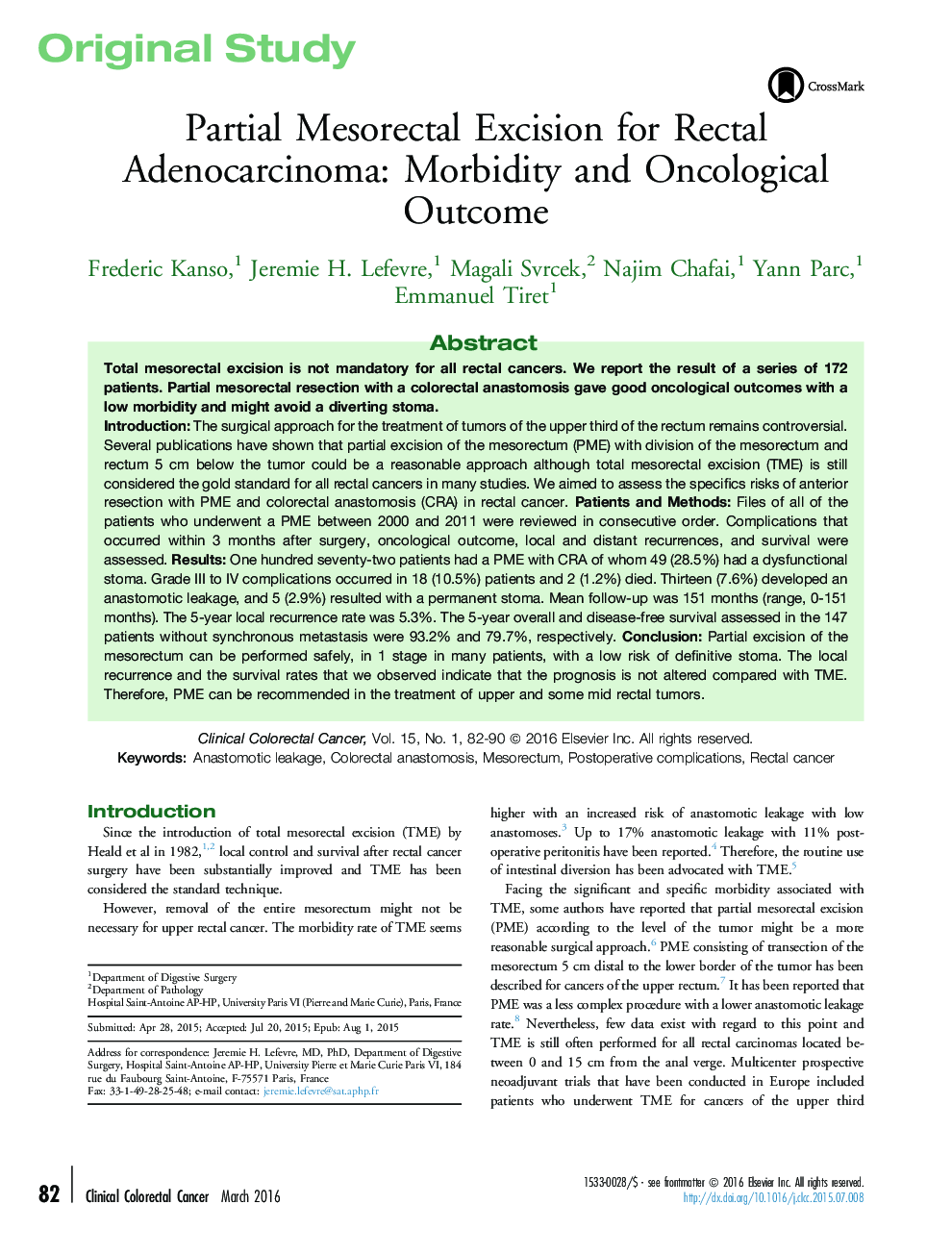| کد مقاله | کد نشریه | سال انتشار | مقاله انگلیسی | نسخه تمام متن |
|---|---|---|---|---|
| 5882249 | 1149455 | 2016 | 10 صفحه PDF | دانلود رایگان |

IntroductionThe surgical approach for the treatment of tumors of the upper third of the rectum remains controversial. Several publications have shown that partial excision of the mesorectum (PME) with division of the mesorectum and rectum 5 cm below the tumor could be a reasonable approach although total mesorectal excision (TME) is still considered the gold standard for all rectal cancers in many studies. We aimed to assess the specifics risks of anterior resection with PME and colorectal anastomosis (CRA) in rectal cancer.Patients and MethodsFiles of all of the patients who underwent a PME between 2000 and 2011 were reviewed in consecutive order. Complications that occurred within 3 months after surgery, oncological outcome, local and distant recurrences, and survival were assessed.ResultsOne hundred seventy-two patients had a PME with CRA of whom 49 (28.5%) had a dysfunctional stoma. Grade III to IV complications occurred in 18 (10.5%) patients and 2 (1.2%) died. Thirteen (7.6%) developed an anastomotic leakage, and 5 (2.9%) resulted with a permanent stoma. Mean follow-up was 151 months (range, 0-151 months). The 5-year local recurrence rate was 5.3%. The 5-year overall and disease-free survival assessed in the 147 patients without synchronous metastasis were 93.2% and 79.7%, respectively.ConclusionPartial excision of the mesorectum can be performed safely, in 1 stage in many patients, with a low risk of definitive stoma. The local recurrence and the survival rates that we observed indicate that the prognosis is not altered compared with TME. Therefore, PME can be recommended in the treatment of upper and some mid rectal tumors.
Journal: Clinical Colorectal Cancer - Volume 15, Issue 1, March 2016, Pages 82-90.e1